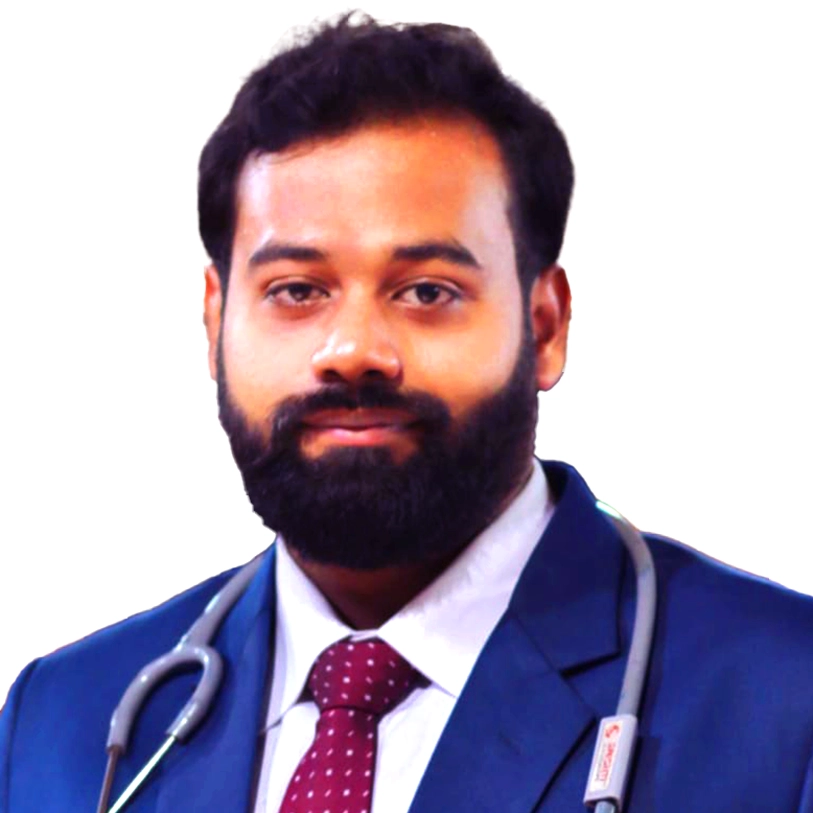Emergency Medicine is a medical specialty focused on the immediate evaluation, diagnosis, and treatment of patients with acute illnesses or injuries that require urgent attention. Emergency physicians, often referred to as ER doctors, are trained to manage undifferentiated and unscheduled patients of all age groups. These doctors serve as frontline providers, delivering critical care when time is of the essence.
Physicians who enroll in a Fellowship in Emergency Medicine have the opportunity to concentrate on a specific subspecialty within this fast-paced field. Common areas of focus include medical toxicology, point-of-care ultrasound, pediatric emergency care, critical care, sports medicine, and emergency department administration.
A primary objective of Emergency Medicine Fellowship programs is to advance physicians' clinical skills and deepen their knowledge in a focused area of practice. Throughout the program, the physicians collaborate closely with seasoned faculty and domain experts, gaining practical experience in managing complex, high-acuity cases. They often rotate through various high-volume emergency departments, trauma centers, and specialized units, allowing them to broaden their clinical exposure and build a well-rounded understanding of their chosen subspecialty.
The Fellowship in Emergency Medicine after MBBS offers an excellent opportunity for medical graduates to develop advanced skills in acute care, receive in-depth training in handling life-threatening situations, and establish a rewarding career as frontline healthcare professionals in fast-paced emergency environments.
| Feature | Details |
|---|---|
| Program Name | Fellowship in Emergency Medicine |
| Program Level | Postgraduate Fellowship |
| Duration | 12 Months |
| Learning Mode | Online live classes + clinical training at a multispecialty hospital |
| Eligibility | MBBS / MD / FNB / DNB / Medical residents / Final-year MBBS students / AYUSH practitioners |
| Curriculum Focus | Systematic approach to emergency department care, triage, life-threatening emergencies, resuscitation protocols, multisystem acute conditions (cardiac, respiratory, neurological, trauma), toxicology, infectious diseases, environmental emergencies, major trauma and fractures, surgical emergencies, pediatric, obstetric, and psychiatric emergencies. |
| Training Structure | Expert-led online sessions, case-based learning, and hospital-based clinical training |
| Faculty | Experienced emergency medicine physicians with clinical and academic expertise |
| Study Resources | Recorded lectures, case studies, presentations, clinical guidelines, and digital learning modules (SCORM packages) |
| Certification | Fellowship completion certificate with CPD certification |
| Career Opportunities | Hospitals, emergency departments, trauma centers, high-dependency units, clinical research, and academic institutions |
| Skill Development | Rapid clinical assessment and prioritization, advanced life support, airway management, stabilization techniques, emergency decision-making, protocol-based management of high-risk cases, procedural skills, trauma resuscitation, and comprehensive emergency care across all age groups. |
| Industry Relevance | Designed as per current clinical guidelines and healthcare standards |
| Flexibility | Suitable for working medical professionals |
Emergency Medicine Fellowship Programs are designed to equip physicians with comprehensive knowledge and advanced skills for managing acute and life-threatening medical conditions. This Fellowship in Emergency Medicine in India offers extensive exposure to a wide range of emergency medical scenarios, enhancing clinical decision-making and hands-on expertise. Delivered in a hybrid format, the Online Fellowship in Emergency Medicine enables physicians to develop proficiency in handling critical situations efficiently and confidently.
The UK CPD accredited Fellowship in Emergency Medicine is designed for doctors working in time-sensitive clinical environments where rapid decisions directly affect patient outcomes. Emergency departments manage a broad spectrum of medical cases, including trauma and cardiac emergencies. The fellowship provides structured academic reinforcement to strengthen clinical skills such as triage and emergency stabilization techniques, while allowing doctors to continue their clinical practice.
This program functions as an accredited medical fellowship for working doctors, with clearly defined and case-based learning modules. The curriculum follows globally established emergency care algorithms and emphasizes patient safety, infection control, and medicolegal awareness. The fellowship format supports consistent academic progression and practical application in real emergency settings.
A CPD certification for doctors demonstrates continuous upskilling through structured emergency medicine training. It reflects updated clinical knowledge in life-support protocols, trauma management, and acute care decision-making. It also supports adherence to current clinical guidelines and strengthens confidence during high-pressure situations. Continuous CPD learning contributes to safer and more efficient emergency care delivery.
The one-year Fellowship in Emergency Medicine (UK CPD accredited) provides recognized CPD credit points that contribute to professional appraisal records and continuing education documentation. These credits support long-term career progression and reflect measurable participation in structured emergency medicine education. They also serve as documented evidence of continued academic engagement for institutional or regulatory requirements.
Upon completion of the programme learners will be able to:
Once the Fellowship in Emergency Medicine is completed, doctors can explore multidisciplinary career opportunities. Career options include working in hospitals, emergency departments, trauma centers, and high-dependency units. Those interested in clinical research or academia can pursue positions in academic institutions. The fellowship also serves as a foundation for further training or specialization in emergency medicine.

First hand Clinical Training: Gain hands-on experience under the supervision of an experienced ER specialist in a multi-superspeciality hospital.

Hybrid Learning Options: The program offers adaptable schedules to support working professionals.

Expert Medical Faculty: Sessions are led by medical experts with years of clinical and academic experience.

Global Acknowledgement: Accredited by CPD, ensuring international recognition of the fellowship.
Module 1. General Approach to Emergency Medicine
Emergency department operations, documentation, triage, referrals, GP/ambulance coordination, telephone advice, junior doctor challenges, handling difficult or special patients, discharges, transfers, breaking bad news, medicolegal concerns, infection control, emergency kits, roadside care, and major incidents.
Module 2. Life-threatening Emergency
Management of anaphylaxis, choking, cardiac arrest (BLS, ALS, post-resuscitation care), central lines, sepsis, and types of shock.
Module 3. Surgical Emergency
Evaluation and causes of abdominal pain, appendicitis, pancreatitis, biliary and bowel issues, urological and vascular emergencies, abscesses, cellulitis, and acute limb ischemia.
Module 4. Cardiological Emergency
ECG interpretation, chest pain syndromes, myocardial infarction (STEMI), pericarditis, brady/tachyarrhythmias, heart failure, hypertension, and aortic dissection.
Module 5. Respiratory Emergency
Assessment of dyspnoea, oxygen therapy, ABGs, asthma, COPD, pneumonia, pneumothorax, PE, pleural effusion, and pulmonary oedema.
Module 6. Gastroenterological Emergency
Management of upper/lower GI bleeding, ascites, and hepatic encephalopathy.
Module 7. Neurological Emergency
Headache types, delirium, unconsciousness, syncope, stroke, TIAs, seizures, and status epilepticus.
Module 8. Endocrine Emergency
Hypoglycaemia, hyperglycaemic states, sodium imbalances, Addisonian and thyrotoxic crises.
Module 9. Uro-nephrology Emergency
UTIs, renal failure, and potassium disturbances.
Module 10. Toxicology
Poisoning approach, diagnosis, decontamination, antidotes, and specific poisonings (e.g., opioids, TCA, paracetamol, alcohols, chemicals, illicit drugs, etc.).
Module 11. Infectious Disease
Infectious diseases overview, notifiable conditions, meningitis, food poisoning, tuberculosis, STIs, HIV, and imported infections like malaria and dengue.
Module 12. Environmental Emergencies
Hypothermia, frostbite, drowning, diving and heat-related emergencies, electrical and radiation incidents.
Module 13. Analgesia and Anaesthesia
Pain management, types of analgesics, local and regional anaesthesia, sedation, and emergency anaesthesia.
Module 14. Major Trauma
Trauma principles, airway/breathing/circulation management, head/spinal/abdominal/chest injuries, burns, blast and crush injuries, and trauma imaging.
Module 15. Wounds
Cover wound assessment, cleaning, closure, and infection prevention.
Module 16. Fractures, Orthopaedics
Include common fracture types, management, splinting, and orthopedic emergencies.
Module 17. Ophthalmology
Eye injury assessment, corneal trauma, contact lens issues, visual loss, and red eye management.
Module 18. Ear, Nose, and Throat
ENT foreign bodies, vertigo, epistaxis, earache, infections, and dental emergencies.
Module 19. Obstetrics and Gynaecology
Gynaecological and obstetric emergencies, pregnancy complications, delivery management, and post-partum issues.
Module 20. Psychiatry
Psychiatric assessment, aggression management, suicide/self-harm, major disorders, substance abuse, legal considerations.
Module 21. Paediatric Emergencies
Child resuscitation, common illnesses, infections, trauma, seizures, poisoning, and child abuse evaluation and management.
At MediCOLL Learning, we understand the challenges and support required on the journey towards excellence in a medical career. Our mission is to help you enhance your knowledge, sharpen your skills, and build the confidence needed to thrive in the ever-evolving and competitive medical field.
Here’s why choosing MediCOLL Learning can be your stepping stone to success.

Designation: MBBS, MS (General and Laparoscopic Surgery)
Dr. Soumya Banerjee, MBBS,MS(General Surgery) has a strong foundation in clinical practice, research, and medical education. He brings hands-on experience from roles in Emergency Medicine and Urology, including house staff at CGDMO, Belur ESI TB Hospital, and RMO at reputed corporate hospitals. Known for his expertise in trauma care and acute surgical management, he also plays a key role in mentoring future doctors for NEET PG and FMGE. At MediCOLL, he is a valued faculty member for the Fellowship in Emergency Medicine and Urology, admired for his clarity and commitment to teaching.
Read MoreThe fellowship program typically spans 12 months, comprising 10 months of theoretical learning delivered through online classes and 2 months of hands-on training under the supervision of experts in the field.
The program is open to MBBS graduates, MD, DNB, and current residents in healthcare. MBBS Final-year students and prior relevant experience in Emergency Medicine can also apply.
Yes, MediCOLL Learning collaborates with reputed global institutions and healthcare partners such as eIntegrity, CPD, RCP, NHS, and Mangalayatan University to offer this fellowship.
The online phase includes: - Live and recorded video lectures - Case-based discussions - MCQs for evaluation - Access to study materials via the Learning Management System (LMS)
The curriculum is designed to cover a broad range of essential topics in emergency medicine, including trauma care, critical care, toxicology, and more. It combines structured didactic sessions with hands-on clinical training to ensure comprehensive learning.
The Fellowship in Emergency Medicine at MediCOLL Learning stands out for its comprehensive curriculum, hands-on clinical training, and distinguished faculty. The program is thoughtfully designed to deliver a well-rounded education in emergency medicine, incorporating the latest advancements in the field and emphasizing the development of practical, real-world skills.
Learners receive: - Guidance from academic mentors - Doubt-clearing sessions - Technical support for the learning platform
For any queries, feedback, or suggestions, you can reach out to the MediCOLL Learning support team through our official email, phone number, or support portal provided on the website. A team member will be assigned to assist you.
Yes, the hybrid format allows working professionals to manage the online component at their convenience, making it ideal for practicing doctors or those preparing for postgraduate exams.
Graduates of the program are well-prepared for careers as emergency medicine physicians, clinical educators, and leaders in emergency care settings. The comprehensive training equips fellows with the knowledge and skills needed to excel in a variety of roles within the field.
Earning potential depends on experience, work setting, and level of responsibility. Emergency physicians working in hospitals, trauma centres, or critical care settings often have higher earning opportunities. Salary may also increase with responsibilities, roles, and additional training such as Fellowship in Emergency Medicine. The fellowship helps medical professionals to stay updated with the current treatment protocols to manage medical emergencies.
A post MBBS fellowship in emergency medicine is a training program designed to enhance clinical skills in managing acute and life-threatening medical conditions. It focuses on early assessment, stabilisation, and initial management of patients. The Fellowship in Emergency Medicine supports development of clinical skills and boosts career growth of medical professionals.
Yes, emergency medicine offers fellowship programs that focus on enhancing decision-making and clinical skills. Fellowship in Emergency Medicine is available for medical professionals seeking training in emergency settings. It helps to improve clinical knowledge and confidence in handling medical emergencies like trauma or heart attack while continuing their clinical practice.
Yes, a BAMS doctor can pursue educational programs like Fellowship in Emergency Medicine after BAMS. The fellowship helps in gaining further knowledge and clinical experience in emergency medicine. Once the fellowship is completed, it opens gates to diverse career opportunities in clinical settings like hospital or trauma centers, academics and research.
The best fellowship in emergency medicine after BAMS depends on course structure, faculty and recognition of the program. MediColl offers medical programs like Fellowship in Emergency Medicine which is recognised with authorities like NHS (UK) and eIntegrity. Live sessions by experienced faculty and learning resources are all readily available for the doctors to learn and grow as a professional.
© Copyrights Medicoll All rights reserved.